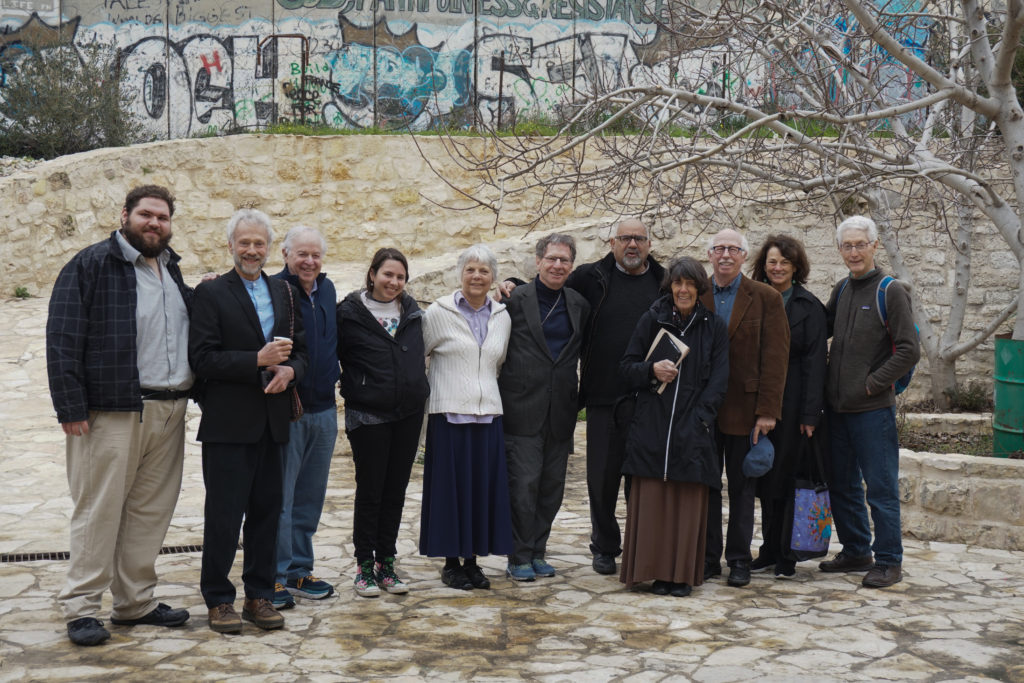
In early March 2020, I was privileged to join a ten-person medical delegation to Gaza organized by the Washington state chapter of Physicians for Social Responsibility. Several among our group have long histories and deep personal ties with Gaza, which has been subjected to a harsh Israeli blockade for fourteen years. The staff of our host organization, the Gaza Community Mental Health Programme, worked tirelessly to tailor our daily schedules to our specialties and interests. We were provided with personal interpreters and transportation. In my capacity as a medical physicist, I visited six hospitals, where I left behind textbooks and electronic files of my medical imaging teaching materials. I met and spoke with hospital administrators, medical directors, radiologists, radiology technologists, and other medical professionals.
Dr. Mahu Ayyad is Medical Director of the Ahli Arab hospital, which is supported by the Episcopal Diocese of Jerusalem. He explained: the five-year survival for a newly-diagnosed breast cancer patient in Gaza is 50%. In Israel, just a few miles away, the five-year survival is 85%. There is no radiotherapy in Gaza. Chemotherapy is in short supply, creating conditions in which a patient is often unable to complete a full course of treatment. Appeals to cross the blockade to receive care in Israel or the West Bank are routinely delayed or simply denied. These patients suffer and die. I wonder, Israel, how is this anything other than depraved indifference to human life? What possible security do you realize by denying a breast cancer patient the standard of care for her disease?
Radiologists at the Nasser Hospital described the many difficulties they face. There are no radiation dosimeters in Gaza and thus no means to measure radiation exposure of patients and radiology personnel. There is no nuclear medicine in Gaza and no tests based on radioactive tracers. Israel, you would not allow even one of your technologists to participate in a fluoroscopy procedure without wearing a proper, calibrated dosimeter. Of course, you know that the isotopes used in nuclear medicine cannot be fabricated into weapons. With no scientific rationale to support your blockade of these medical necessities, what sense are we to make of it?
At the Al Awda Hospital, a fluoroscopy system sits dormant awaiting a $3,000 circuit board, the delivery of which Israel has blocked for months. This is common in Gaza. At the Al Quds Red Crescent Hospital, a new CT scanner has been delivered, but the workstation that enables its advanced cardiac applications has been held up at the blockade. Israel, you are well aware that the fluoroscopy board is specific for that imaging system and could not be used for anything else. And the workstation is specific to that Philips CT scanner. Your blockade is capricious; it is malicious. When applied to medical devices and supplies, to isolation of physicians and support staff from their international professional networks, and to technical support from equipment providers, your blockade serves no military or security purpose.
The consequences of the Israeli blockade of Gaza go far beyond these stories and touch every aspect of life. The UN has declared that Gaza would be unlivable by 2020. The water is unsafe to drink, sewage is untreated, food supplies are inadequate. The Israeli organization Gisha reports that unemployment in Gaza is roughly 50%. Gazan teenagers have endured three wars; the psychological effects of sustained trauma are widespread.
In your collective soul, Israel, do you recognize in the suffering and trauma created by your violent blockade something of your own people’s history of persecution? Will you allow those elements of shared history to open a path to compassion?
Thomas Foster is Professor of Imaging Sciences at the University of Rochester Medical Center in Rochester, NY USA.